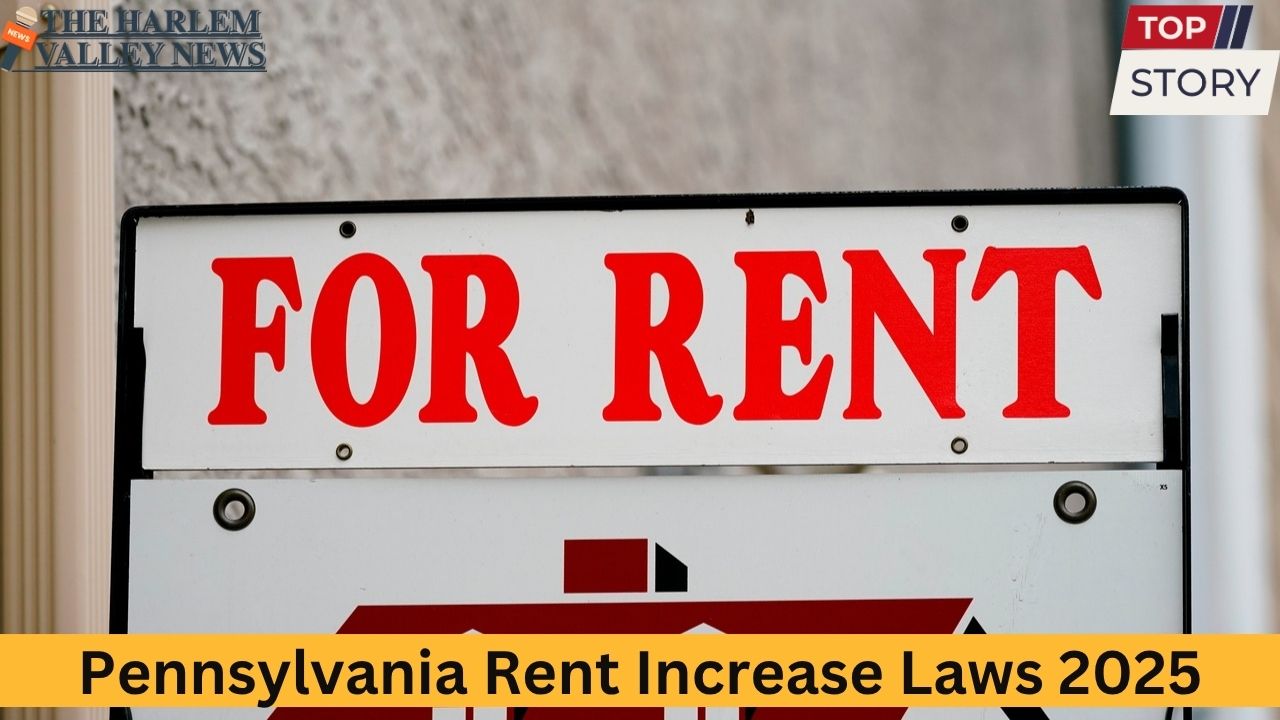Rental prices across Pennsylvania’s vibrant cities—Philadelphia’s bustling neighborhoods, Pittsburgh’s evolving business districts, Harrisburg’s historical downtown, and Allentown’s growing suburbs—continue to shape the lives of nearly 1.6 million renters in the state. With rapid housing demand, affordability concerns, and new legislative proposals emerging in 2025, understanding your rights as a tenant in Pennsylvania is crucial. This comprehensive guide explores everything renters need to know about Pennsylvania’s rent increase laws for 2025—tailored for city dwellers, suburbanites, and rural tenants alike.
The Current Statewide Law: No Rent Cap
Lack of Statewide Rent Control
As of August 2025, Pennsylvania does not have statewide rent control or rent stabilization laws. This means:
-
Landlords can increase rents by any amount when a lease ends—as long as proper notice is provided.
-
There is no legal limit (percentage or dollar cap) on rent increases for returning tenants.
-
These laws apply in all Pennsylvania cities, including large metro areas like Philadelphia, Pittsburgh, Allentown, Erie, Scranton, Reading, Bethlehem, and Harrisburg.
Statewide Rental Affordability Stats
-
The average cost for a 3-bedroom apartment in Pennsylvania is about $1,711 per month.
-
Over 43% of renters in Pennsylvania spend more than 30% of their monthly income on rent—a threshold considered “rent-burdened.”
2025 Notice Requirements for Rent Increases
General Requirements
While there is no cap on the amount of increase, landlords must provide written notice before raising the rent:
-
Month-to-month leases: At least 30 days’ written notice.
-
Yearly or longer leases: At least 60 days’ written notice before the lease renewal period.
Verbal notice is not valid. Written notification must clearly state the new rental amount and the date it will take effect. If a landlord raises rent without proper notice, tenants can challenge the increase in court.
Lease Term Restrictions
-
Rent cannot be increased during a fixed-term lease (such as a one-year lease) unless the lease specifically permits increases.
-
For short-term and month-to-month leases, increases can take effect after the minimum notice.
Special Laws and Local Ordinances
Philadelphia
Philadelphia does not have rent control, but it does have unique housing rules:
-
The Philadelphia Fair Housing Ordinance prohibits discrimination and mandates habitability standards.
-
The city has a permanent eviction diversion program; landlords must attempt mediation with tenants before filing for eviction.
-
Additional city-specific notice or tenant protection requirements may apply in Philadelphia and similar cities.
Pittsburgh & Allentown
Neither Pittsburgh nor Allentown has enacted local rent control laws. However, both cities enforce Pennsylvania’s general landlord-tenant statutes and anti-discrimination policies.
Proposed Legislative Changes in 2025
New Bills Under Consideration
As housing costs rise, state legislators are considering several new bills in 2025 to help stabilize rents and protect tenants:
-
House Bill 914: Proposes tying annual rent increases to inflation and wage growth—mirroring successful laws in California and Oregon.
-
Senate Bill 546: Would prohibit rent increases of more than 15% for new tenants and require a formal petition process for increases above this threshold in regulated units.
-
House Bill 72: Would cap annual rent increases at 10% statewide.
-
Senate Bill 144 – Just Cause Eviction Protections: Would require that landlords have a documented reason (such as nonpayment or lease violation) to evict a tenant.
-
Senate Bill 200 – Right to Legal Counsel: Would give tenants free legal representation during eviction proceedings.
As of August 2025, none of these bills have become law—they are still under legislative consideration. Renters should keep an eye on state legislative updates for changes that may impact rental laws in your city.
What Is a “Reasonable” Rent Increase in Pennsylvania?
-
Even without a legal cap, typical annual rent increases in Pennsylvania range from 3-5% if following national and local market trends.
-
However, some urban markets have seen increases as high as 10-12% due to high demand and low vacancy rates, especially in Philadelphia and Pittsburgh.
-
A rent hike above 10% may prompt negotiations as high increases can result in tenant turnover and potential vacancy losses for landlords.
Tenant Protections and Anti-Retaliation Rules
Protection from Retaliatory or Discriminatory Increases
-
Landlords cannot raise rent in retaliation if a tenant has exercised their legal rights, such as filing complaints about unsafe conditions or discrimination.
-
The federal Fair Housing Act and Pennsylvania Human Relations Act prohibit rent increases based on race, sex, religion, familial status, disability, or other protected categories.
Required Habitable Conditions
All residential properties must remain safe, habitable, and up to code. Landlords must make repairs promptly and ensure utilities work. Failures may legally justify a tenant withholding rent or breaking the lease.
Security Deposits and Rent Increases
-
Maximum security deposit: Up to two months’ rent during the first year, then reduced to one month for subsequent years.
-
Security deposits must be returned, minus any legally itemized deductions, within 30 days after move-out.
-
A rent increase could affect the required deposit amount at the start of a lease renewal.
Steps Landlords Must Take for Rent Increases
If a landlord wants to raise the rent, they must:
-
Check the Lease: Ensure any increase is allowed by the lease and only takes effect at the lease end (unless otherwise stated).
-
Give Written Notice: Provide at least 30 days’ notice for month-to-month leases, or 60 days for longer leases.
-
State the New Terms: Detail the new rent and effective date.
-
Document the Change: Keep a written record of all notices and tenant responses.
What Tenants Should Do When Notified of a Rent Increase
If you receive a rent increase notice:
-
Read the Notice Carefully: Ensure it is written, timely, and includes the new rent amount and start date.
-
Check Your Lease: Verify that the increase is allowed per your rental agreement.
-
Negotiate: If the increase is steep, consider negotiating with your landlord—especially if you’re a long-term reliable tenant.
-
Compare Market Rates: Research average rents in your city—Philadelphia, Scranton, Lancaster, Bethlehem—to see if your new rate is fair.
-
Get Involved: If you feel the increase is unreasonable or discriminatory, contact local tenant unions or housing advocacy groups.
City-by-City Rent Trends and Challenges
Philadelphia
-
Average rent in 2025: ≈ $1,750–$2,200 for a 2-bedroom apartment.
-
Rising demand in Center City, Fishtown, and University City drives up rates.
-
High eviction filings in 2024, with 115,619 statewide—most in Philadelphia County.
Pittsburgh
-
Average rent: $1,400–$1,700 for a central 2-bedroom apartment.
-
Tech and healthcare sector growth spurring demand.
-
Low vacancy rates in Oakland, Shadyside, and Lawrenceville.
Allentown, Erie, Scranton, Reading
-
Moderate rent increases, with typical 2-bedroom units ranging from $1,000–$1,350.
-
Rising rents due to migration from larger cities and tightening supply.
Harrisburg & State College
-
Demand driven by university students, state employees, and healthcare workers.
-
Annual rent hikes in line with statewide averages (3-5%).
The Future of Rent Laws in Pennsylvania
With multiple new bills on the agenda for 2025, renters should expect ongoing debates over:
-
Rent caps tied to inflation/wage growth
-
Just cause eviction protections
-
Permanent local eviction diversion programs
-
Security deposit limits and transparency
Urban and suburban renters may soon see new protections signed into law. Until then, tenant advocacy is crucial in shaping Pennsylvania’s rental landscape.
Frequently Asked Questions
1. Can my landlord raise my rent by any amount in Pennsylvania?
Yes, unless your city adopts new local ordinances or the state passes rent cap legislation. As of August 2025, there is no rent increase limit.
2. How much notice must my landlord give for a rent increase?
Landlords must provide at least 30 days’ written notice for month-to-month leases and at least 60 days for yearly or longer leases.
3. Are there special rules for Philadelphia or Pittsburgh?
Both cities may have unique notice and eviction provisions but do not have rent control. Philadelphia requires participation in its Eviction Diversion Program.
4. What should I do if my landlord raises rent as retaliation?
It is illegal for any landlord to raise rent, evict, or otherwise retaliate because a tenant exercises legal or housing rights. Tenants should retain documentation and seek legal advice or contact local housing agencies.
5. Are there any protections for seniors or low-income renters?
Yes. The Property Tax/Rent Rebate (PTRR) program expanded in 2025, increasing eligibility to those making up to $45,000 per year and raising the maximum rebate to $1,000.
Conclusion
Pennsylvania’s rent increase laws in 2025 empower landlords with flexibility but leave tenants exposed to potentially steep rent hikes—especially in dynamic urban markets like Philadelphia, Pittsburgh, and Allentown. Crucial tenant protections exist against retaliation and housing discrimination, and notice requirements offer crucial time to prepare for increased housing costs. However, with over 43% of renters already cost-burdened and new legislation on the horizon, tenants must stay informed and proactive in protecting their rights.
For Pennsylvania renters—whether in the heart of Philadelphia, the tech hubs of Pittsburgh, or the fast-growing suburbs surrounding Harrisburg and Allentown—tracking your lease terms, responding promptly to notices, and staying updated on new state and city laws will be your best defense in a rapidly changing rental market.
















Leave a Reply